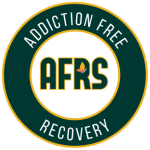The Importance of Aftercare: Preventing Relapse and Maintaining Sobriety
The journey to recovery from addiction is one of the most challenging paths anyone can walk. Completing a treatment program is a significant milestone, but it’s not the end of the road. The real work begins after the program ends, where the focus shifts to maintaining sobriety and preventing relapse.
Essential Takeaways
- Aftercare is Crucial for Long-Term Sobriety: Completing a treatment program is just the beginning. Aftercare provides ongoing support, tools, and resources to help individuals maintain sobriety and prevent relapse.
- Personalized Care Enhances Recovery Success: A successful aftercare plan is tailored to the individual’s unique needs, addressing personal challenges, triggers, and goals. Personalized care ensures that the support provided is relevant and effective.
- Building a Strong Support Network is Key: Engaging in support groups, therapy, and community resources helps individuals build a robust support system that reinforces their recovery journey. A strong network provides accountability, encouragement, and a sense of belonging.
This is where aftercare comes in. Aftercare is the critical phase that supports individuals as they transition back to everyday life, helping them sustain the progress they’ve made and continue on their path to long-term recovery.
Understanding Aftercare: What It Is and Why It’s Essential
What is Aftercare?
Aftercare refers to the range of services and support systems provided after an individual completes a primary addiction treatment program. It’s designed to help those in recovery maintain their sobriety, manage the challenges of post-treatment life, and prevent relapse. Aftercare isn’t a one-size-fits-all solution; it’s a personalized plan that evolves based on the individual’s needs, progress, and circumstances.

Why Is Aftercare So Important?
The transition from a structured treatment environment to everyday life can be overwhelming. The temptations and triggers that were managed in a controlled setting may resurface, and without ongoing support, the risk of relapse increases significantly. Aftercare provides the tools, resources, and support necessary to navigate these challenges successfully. It reinforces the skills learned during treatment and helps individuals build a sustainable, healthy lifestyle.
Types of Aftercare Programs Available
Aftercare programs come in various forms, each offering unique benefits tailored to different aspects of recovery. Here’s a look at some common types of aftercare:
Individual Therapy
One-on-one therapy sessions continue to play a crucial role in aftercare. These sessions allow individuals to work through personal challenges, address underlying issues that may lead to relapse, and maintain focus on their recovery goals. Therapists help clients develop coping strategies and provide a safe space to discuss their progress, setbacks, and emotions.
Group Therapy and Support Groups
Group therapy and support groups, such as Alcoholics Anonymous (AA) or Narcotics Anonymous (NA), offer a sense of community and shared experience. In these settings, individuals can connect with others who understand their struggles, share their successes, and gain support from peers who are on a similar journey. The camaraderie and accountability found in group settings are invaluable for long-term recovery.
Sober Living Homes
Sober living homes, also known as halfway houses, provide a structured, substance-free environment for individuals transitioning from treatment to independent living. These homes emphasize accountability, routine, and support, offering a safe space where residents can practice the skills they’ve learned in treatment while gradually reintegrating into society.
Outpatient Programs
Outpatient programs are a step down from inpatient treatment, offering flexibility for individuals to continue receiving therapy and support while living at home. These programs typically involve regular therapy sessions, group counseling, and access to resources that support ongoing recovery. Outpatient care allows individuals to balance their recovery with work, family, and other responsibilities.

12-Step Programs
12-step programs like AA and NA remain staples in aftercare. These programs provide a structured approach to maintaining sobriety through regular meetings, mentorship, and a focus on spiritual and personal growth. The 12-step model emphasizes acceptance, accountability, and the power of community support.
Key Components of a Successful Aftercare Plan
For aftercare to be effective, it needs to be comprehensive, personalized, and adaptable. A successful aftercare plan typically includes the following components:
Personalized Care
No two recovery journeys are the same, which is why aftercare plans must be tailored to the individual’s specific needs. This involves assessing the individual’s progress, challenges, and goals, and creating a plan that addresses their unique circumstances. Personalized care ensures that the support provided is relevant and effective.
Monitoring and Accountability
Regular check-ins with therapists, counselors, or case managers are vital to track progress and address any emerging issues. Monitoring helps individuals stay accountable to their recovery goals, while also providing an opportunity to make adjustments to the aftercare plan as needed.
Skill-Building and Education
Aftercare is not just about maintaining sobriety; it’s also about equipping individuals with the skills they need to thrive in their daily lives. This includes learning stress management techniques, communication skills, and healthy coping strategies. Ongoing education about addiction and recovery helps individuals stay informed and empowered to make positive choices.
Family Involvement
Addiction doesn’t just affect the individual; it impacts the entire family. Involving family members in aftercare can strengthen the support system, improve communication, and help rebuild trust. Family therapy or support groups for families can be a valuable part of the aftercare process, fostering a healthier home environment that supports recovery.
The Role of Aftercare in Preventing Relapse
Relapse is a common challenge in recovery, but it’s not an inevitable part of the process. With the right aftercare plan, the risk of relapse can be significantly reduced. Here’s how aftercare plays a crucial role in relapse prevention:

Managing Triggers and Cravings
Aftercare programs equip individuals with the tools and strategies needed to manage triggers and cravings. Whether it’s stress, certain environments, or social pressures, aftercare helps individuals identify and avoid situations that could lead to relapse. Techniques such as mindfulness, cognitive-behavioral strategies, and emotional regulation are often taught to manage these challenges.
Addressing Psychological and Emotional Challenges
The psychological and emotional aspects of addiction can persist long after treatment ends. Depression, anxiety, and unresolved trauma are common among individuals in recovery and can lead to relapse if not addressed. Aftercare provides ongoing therapy and support to help individuals work through these challenges, promoting emotional stability and resilience.
Building a Strong Support Network
Having a solid support network is one of the most effective ways to prevent relapse. Aftercare encourages individuals to build and maintain connections with supportive friends, family members, and peers who understand their journey. Regular participation in support groups or community activities also strengthens these connections and provides ongoing encouragement.
Long-Term Benefits of Aftercare: Beyond Relapse Prevention
The benefits of aftercare extend far beyond preventing relapse. Engaging in aftercare helps individuals build a fulfilling, balanced life that supports their long-term sobriety and overall well-being.
Sustained Personal Growth
Aftercare is an opportunity for continued personal growth. Whether it’s setting new goals, pursuing education or career advancement, or developing new hobbies, aftercare encourages individuals to focus on building a meaningful life. This sense of purpose is key to maintaining motivation and preventing relapse.
Improved Relationships and Social Connections
Addiction often strains relationships with loved ones. Aftercare helps individuals repair and strengthen these connections by promoting healthy communication, setting boundaries, and addressing past conflicts. As relationships improve, individuals gain a more robust support system, which is crucial for long-term recovery.
Enhanced Emotional and Mental Health
Aftercare supports ongoing mental and emotional well-being by providing tools to manage stress, anxiety, and other emotional challenges. This continued focus on mental health reduces the risk of relapse and contributes to a higher quality of life. With regular therapy and support, individuals learn to navigate life’s ups and downs with resilience and confidence.
Maintaining Sobriety: Lifelong Commitment to Health and Wellness
Recovery is a lifelong journey that requires ongoing commitment. Aftercare is an essential part of this journey, providing the structure and support needed to maintain sobriety and live a healthy, balanced life.
Ongoing Therapy and Support
Even years into recovery, ongoing therapy and support can be invaluable. Life changes, new challenges, and unexpected stressors can arise, and having a consistent support system helps individuals navigate these situations without turning to substances. Regular check-ins with a therapist, participation in support groups, and staying connected to the recovery community are all important aspects of long-term aftercare.
Setting and Achieving New Goals
Aftercare isn’t just about avoiding relapse; it’s also about moving forward and achieving new goals. Whether it’s advancing in a career, building new relationships, or pursuing personal interests, setting and working towards goals keeps individuals focused and motivated. A sense of accomplishment and purpose is vital for maintaining long-term sobriety.
Rebuilding a Fulfilling Life
Recovery is about more than just staying sober; it’s about rebuilding a life that is fulfilling and rewarding. Aftercare helps individuals focus on creating a balanced lifestyle that includes healthy relationships, meaningful work, and activities that bring joy and satisfaction. This holistic approach to recovery ensures that sobriety becomes a natural part of a well-rounded life.
Common Challenges in Aftercare and How to Overcome Them
While aftercare is crucial for long-term recovery, it’s not without its challenges. Here are some common obstacles individuals may face and how to overcome them:
Complacency
After a period of sobriety, it’s easy to become complacent and assume that the risk of relapse has passed. However, recovery requires ongoing effort. Staying engaged in aftercare activities, continuing therapy, and remaining vigilant about potential triggers are essential to prevent complacency.
Emotional Setbacks
Emotional setbacks, such as feelings of loneliness, frustration, or hopelessness, can occur at any time during recovery. It’s important to address these feelings rather than ignore them. Regular therapy, support groups, and open communication with loved ones can help manage these emotions and keep recovery on track.
Lifestyle Adjustments
Adapting to a substance-free life involves significant lifestyle changes, which can be difficult. Finding new ways to socialize, manage stress, and enjoy life without substances takes time and effort. Aftercare programs offer guidance and support in making these adjustments, helping individuals build a new lifestyle that supports their sobriety.

Resources and Support Systems for Continued Recovery
Access to resources and support systems is critical for maintaining long-term sobriety. Here are some essential resources that can aid individuals in their recovery journey:
Online Resources
In today’s digital age, numerous online resources are available to support ongoing recovery. Websites, forums, and mobile apps offer a wealth of information, virtual support groups, and self-help tools. Some popular online resources include:
- Substance Abuse and Mental Health Services Administration (SAMHSA): Offers a treatment locator, information on aftercare services, and resources for finding support groups.
- National Institute on Drug Abuse (NIDA): Provides research, educational materials, and information on evidence-based treatment options.
- Online Recovery Communities: Websites like Reddit’s r/StopDrinking or r/Recovery offer peer support and shared experiences.
Mobile Apps
Mobile apps can help individuals track their progress, set goals, and connect with support networks. Some useful apps include:
- Sober Grid: A social network for individuals in recovery, offering community support and resources.
- Nomo: A sobriety tracking app that helps users monitor their clean time and connect with other individuals in recovery.
- I Am Sober: Provides tracking tools, daily motivation, and community support to help maintain sobriety.
Community Support Groups
Local community support groups are invaluable for ongoing recovery. These groups provide face-to-face interaction, accountability, and a sense of belonging. Look for:
- Alcoholics Anonymous (AA): Offers a 12-step program and regular meetings for those recovering from alcoholism.
- Narcotics Anonymous (NA): Provides support for individuals recovering from drug addiction through meetings and sponsorship.
- SMART Recovery: Uses a science-based approach to help individuals manage their recovery and maintain sobriety.
Professional Counseling and Therapy
Continued engagement with mental health professionals can greatly benefit long-term recovery. Options include:
- Individual Therapy: Ongoing therapy sessions to address personal issues, develop coping strategies, and provide emotional support.
- Family Therapy: Helps repair and strengthen family relationships, improve communication, and support the recovery process.
- Career Counseling: Assists in career development and finding meaningful employment, which can contribute to a fulfilling sober life.
Conclusion: The Lifelong Journey of Recovery and the Vital Role of Aftercare
The journey of recovery is a lifelong commitment, and aftercare plays a crucial role in ensuring that individuals maintain their sobriety and build a fulfilling life. Aftercare is not just a phase; it’s an integral part of the recovery process that provides the support, resources, and tools necessary for long-term success.
By engaging in aftercare, individuals can manage the challenges of post-treatment life, prevent relapse, and continue to grow and thrive. Remember, recovery is a continuous journey, and the support provided through aftercare helps to make that journey smoother and more manageable.
If you or a loved one is in recovery or preparing to transition from treatment, don’t underestimate the importance of aftercare. Explore available options, seek out resources, and commit to a personalized aftercare plan that supports your unique needs. Remember, lasting sobriety is achievable with the right support and commitment.
Call to Action
If you’re ready to take the next step in your recovery journey, reach out to us for more information about our aftercare programs and resources. Our team is here to support you every step of the way and help you build a successful, sober life. Contact us today to learn more about how we can assist you in maintaining your sobriety and achieving your recovery goals.
FAQs
1. What is aftercare and why is it important for addiction recovery?
Aftercare refers to the ongoing support and services provided after an individual completes a primary addiction treatment program. It is important because it helps individuals maintain their sobriety, manage challenges, and prevent relapse. Aftercare offers continued therapy, support groups, and other resources to ensure a successful transition back to daily life.
2. What types of aftercare programs are available?
Aftercare programs include individual therapy, group therapy and support groups, sober living homes, outpatient programs, and 12-step programs. Each type offers unique benefits and can be tailored to an individual’s needs to support their recovery journey.
3. How can aftercare help prevent relapse?
Aftercare helps prevent relapse by providing tools and strategies to manage triggers and cravings, addressing psychological and emotional challenges, and building a strong support network. It offers continued guidance and accountability to help individuals stay on track with their recovery goals.
4. What should I include in a successful aftercare plan?
A successful aftercare plan should include personalized care tailored to individual needs, regular monitoring and accountability, skill-building and education, and family involvement. It should be comprehensive and adaptable to support ongoing recovery.
5. How can I find the right aftercare resources for my needs?To find the right aftercare resources, consider reaching out to your treatment provider, exploring online resources, joining support groups, and seeking recommendations from professionals. It’s important to choose resources that align with your specific needs and recovery goals.


























